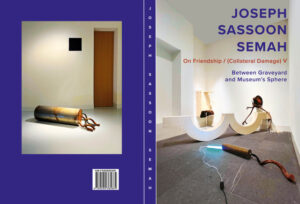Ravaged By Floods: Afghanistan’s Desperate Plight

Map en.wikipedia.org
05-15-2024 ~ Unprecedented flash floods wreak havoc in Afghanistan, leaving devastation in their wake and plunging the nation into crisis.
Nearly 315 people have died, and over 1,600 have suffered injuries in catastrophic flash floods that swept through various provinces in Afghanistan on Friday, May 10. Authorities have declared a state of emergency in response to the situation. Northern Baghlan province bore the brunt of the devastation, with a death toll of over 300 and thousands of houses either destroyed or damaged. Torrential rains have wreaked havoc in several provinces, including Takhar, Badakhshan, Ghor, and Herat.
Flash floods happen when heavy rain overwhelms normal drainage. Climate change, which warms the atmosphere, boosts extreme rainfall, increasing the likelihood of these events. These floods have had a deep impact on the population, as many have lost homes and livelihoods. Rescue teams are working on the ground, but reaching flooded areas has become tough.
Meanwhile, the UN Secretary-General, Antonio Guterres, expressed his solidarity with the people of Afghanistan and extended his condolences to the families of the victims. He added that the UN was collaborating with local authorities to provide assistance.
Afghanistan ranks among the 10 most vulnerable countries to climate change and has been experiencing a rise in extreme weather conditions, particularly floods, droughts, and sand and dust storms. These phenomena have led to the loss of lives and livelihoods, as well as significant damage to infrastructure. Yet, despite being one of the countries most vulnerable to climate change, Afghanistan was not represented at COP27, the crucial 2022 UN Climate Change Conference in Sharm El-Sheikh, Egypt. Nations acknowledged the need for finance to tackle climate-related loss and damage, agreeing to establish a fund and funding arrangements. Read more
Seven Features Of Ancient Enterprise

Michael Hudson
05-15-2024 ~ The changing context for enterprise through the centuries reminds us that business activities are not universal but fluid and alter according to society’s practical priorities and ethics.
There are multiple differences between antiquity’s economic practices and those of the modern world, and these should be borne in mind when considering the changing context for enterprise through the centuries. Whereas modern business largely operates on credit, in archaic and classical times handicraft workshops were located on basically self-sufficient landed estates, including those of the large public institutions. Such industry was self-financed rather than operating on credit, which was extended mainly for long-distance and bulk trade.
Furthermore, entrepreneurs in antiquity either headed wealthy families or sought fortunes by managing other people’s money, which typically was provided subject to a stipulated return. Regardless of the source of their capital, they coordinated a complex set of relationships whose institutional structure evolved throughout the second and first millennia BC.
The Importance of Land
From Babylonian times down through late Republican Rome, commercial income tended to be invested in land. But there was no price speculation on credit until the late first century BC in Rome. Land was the major savings vehicle and sign of status. The largest estate owners shifted subsistence land to growing cash crops, headed by olive oil and wine in the Mediterranean, and dates in the Near East, harvested increasingly by slaves. Read more
New Title – Joseph Sassoon Semah: On Friendship / (Collateral Damage) V – Between Graveyard and Museum’s Sphere
 Joseph Sassoon Semah: On Friendship / (Collateral Damage) V – Between Graveyard and Museum’s Sphere is due to be published (June 2024)
Joseph Sassoon Semah: On Friendship / (Collateral Damage) V – Between Graveyard and Museum’s Sphere is due to be published (June 2024)
At first glance, a graveyard and a museum space seem to have little in common. Yet they both give meaning to the artworks presented by Joseph Sassoon Semah (Baghdad, 1948) in the exhibition Between Graveyard and Museum’s Sphere.
Sassoon Semah takes the visitor on a wondrous journey of exploration. This journey extends from the Temple of King Solomon in Jerusalem, through the lost public space (Jewish quarter) of Baghdad, the waiting room of his Saba (grandfather) and the Auschwitz-Birkenau extermination camp, to spatial architecture based on the typography of the Talmud Bavli.
With much art and texts by Joseph Sassoon Semah, Steve Austen, Linda Bouws, A.S. Bruckstein Çoruh / House of Taswir, Guus van Engelshoven, Arie Hartog, Gideon Ofrat, Jom Semah, Lisette Pelsers, David Sperber and Rick Vercauteren.
Metropool Internationale Kunstprojecten
Final editing: Linda Bouws & Joseph Sassoon Semah
Design + layout: KUNSTBURO geert schriever
A4, 208 pag -Full color
ISBN 9789090385884
The publication will be released at the end of June 2024.
The publication can now be pre-ordered:
€34.95 + €5 shipping costs (the Netherlands):
Stichting Metropool Internationale Kunstprojecten, account number NL 42 INGB 0006 9281 68 stating On Friendship / (Collateral Damage) V, name and address.
From July 2024 onwards
€ 39.95 and € 5 shipping costs (the Netherlands):
Stichting Metropool Internationale Kunstprojecten, account number NL 42 INGB 0006 9281 68 stating On Friendship / (Collateral Damage) V, name and address.
Parallels Between Archaic Entrepots And Modern Offshore Banking Centers

Michael Hudson
05-12-2024 ~ Offshore banking and tax-avoidance centers are nothing new; they’ve been with us for millennia.
A discussion of the origins of urbanization may provide some insight into the character of modern social problems by highlighting the long historical dynamic at work. It may not be out of place here to point out that anti‑states are well known in the modern world, above all in what the U.S. Federal Reserve Board classifies as eleven offshore banking centers. Five such enclaves are in the Caribbean: Panama, the Netherlands Antilles (Curaçao), Bermuda, the Bahamas, and the British West Indies (Cayman Islands). Three enclaves—Hong Kong, Macao, and Singapore—were founded to conduct the China trade. The remaining three are Liberia, Lebanon, and Bahrain at the mouth of the Persian Gulf—the island which Bronze Age Sumerians called Dilmun when they used it to trade with the Indus valley and the Iranian shore.
Nothing would seem more modern than these offshore banking and tax-avoidance centers. They are the brainchildren of lawyers and accountants in the 1960s seeking to weave loopholes into the social fabric—to provide curtains of secrecy (“privacy”) to avoid or evade taxes, and to serve as havens for ill‑gotten earnings as well as to facilitate legitimate commerce.
Whereas modern nation‑states enact laws and impose taxes, these enclaves help individuals evade such regulations. And whereas nation‑states have armies, these centers are the furthest thing from being military powers. They are antibodies to nationhood, yet more may be learned about Ice Age, Neolithic, and even Bronze Age gathering and meeting sites by looking at these modern enclaves than by examining classical city‑states such as Athens and Rome. Read more
Trump Loyalists Preview Strategies To Upend 2024 Election
 05-10-2024 ~ Not just challenging voters’ credentials in battleground states. But attacking every step in running elections.
05-10-2024 ~ Not just challenging voters’ credentials in battleground states. But attacking every step in running elections.
As the 2020 presidential election entered its final stretch, Christina Bobb was not just covering it as a TV newswoman for the pro-Donald Trump One America News Network (OANN). The tall, dark-haired, clear-speaking ex-marine and lawyer was working to overturn it.
Bobb believed that Democrats and election officials colluded to fabricate thousands of voter registrations, illegal voters, forged ballots, and finessed the vote count until Joe Biden was the victor in 2020’s battleground states.
Yet it was Bobb and Trump loyalists who were feverishly plotting and pushing to alter the presidential election’s outcome, as she detailed in her 2023 book, Stealing Your Vote: The Inside Story of the 2020 Election and What it Means for 2024.
Publicly, Bobb kept reporting for OANN. Under the radar, she “joined” Rudy Giuliani and others in Trump’s orbit who pursued ways to nullify the results. She wrote that she was on the call with Trump when he urged Georgia Secretary of State Brad Raffensperger to “find 11,780 votes.” Bobb said that she coordinated “the litigation efforts in Arizona, Michigan, and New Mexico,” including, apparently, a slate of fake Electoral College members who forged and sent paperwork to Congress certifying that Trump had won Arizona.
In April, Bobb and 17 others were indicted on multiple felonies in that electoral hijacking scheme by Arizona Attorney General Kristin Mayes, a Democrat. Only weeks before, on the same day Trump secured the 2024 Republican nomination, Bobb was named the Republican National Committee’s senior counsel for election integrity. Beyond the surreal twist that a politico indicted for attempting to overturn a swing state’s presidential vote will now lead a national party’s efforts to police elections, Bobb’s book previews the lawfare and conspiratorial mindset that is already shadowing 2024’s presidential election. Read more
Will the Golden Age For Corporate Shareholders Ever End?

John P. Ruehl – Source: Independent Media Institute
05-05-2024 ~ Shareholders have assumed enormous influence over U.S. corporations over the last few decades. Despite their firm hold, shifts are underway that could alter the domestic corporate landscape.
On April 3, 2024, Disney CEO Bob Iger officially fended off the attempt by institutional investor Nelson Peltz and his hedge fund Trian Partners to secure two board seats. During the affair, Disney faced pressure from proxy advisory firm Institutional Shareholder Services to support Peltz’s initiative. While Iger prevailed, the costliest board fight in history underscores the significant influence of shareholders in shaping the fates of corporations.
Historically, U.S. corporate power was concentrated among executives, though with varying degrees of influence held by workers and other stakeholders. However, over the last century, U.S. corporations increasingly oriented themselves around their stock price and the imperative to maximize shareholder value. This mindset has now firmly entrenched itself within U.S. corporate culture and continues to shape their decisions and priorities.
Until the early 20th century, shareholders wielded minimal influence over U.S. corporations, with notable changes instigated by industries such as railroad conglomerates. To sidestep antitrust accusations and manipulate competition, for example, railroad companies created “communities of interest” by buying shares in one another, frequently installing their financiers and bankers on targeted companies’ boards. However, increased antitrust enforcement from the Supreme Court discouraged these practices by 1912. Read more
- Page 2 of 3
- previous page
- 1
- 2
- 3
- next page


